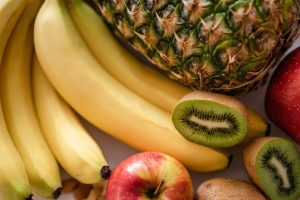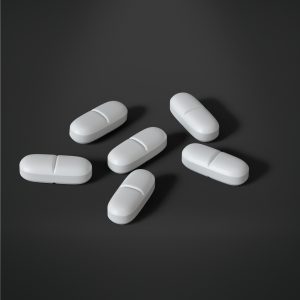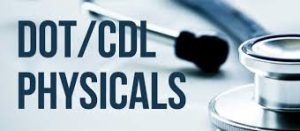Adenomyosis—a condition where the inner lining of the uterus (the endometrium) grows into its muscular wall—can cause significant pain, heavy bleeding, and other debilitating symptoms. For those managing this condition, it’s natural to wonder if diet can play a role in alleviating symptoms. The answer isn’t straightforward, but there’s evidence that nutrition may contribute to managing inflammation, hormonal imbalances, and overall health, which are all relevant to adenomyosis.
In this article, I’ll dive deep into how dietary changes may impact adenomyosis, the scientific rationale behind these strategies, and how you can take steps toward dietary changes that support your overall health while managing this challenging condition.
Understanding Adenomyosis: What You Need to Know
Before discussing diet, it’s crucial to understand the condition itself. Adenomyosis occurs when the tissue lining the uterus grows into the muscle layer, leading to an enlarged uterus. This results in:
- Chronic Pelvic Pain: Persistent discomfort or severe cramping.
- Heavy or Prolonged Menstrual Bleeding: Often requiring medical intervention.
- Bloating and Pressure: Related to the enlarged uterus.
- Hormonal Imbalances: Contributing to symptoms like fatigue and mood swings.
While the exact cause isn’t well understood, adenomyosis is often linked to high estrogen levels, inflammation, and immune system dysregulation—all of which diet may influence.
You also may like to read this: How Long Does a Diet Pill Stay in Your System? Everything You Need to Know
Can Diet Play a Role in Managing Adenomyosis Symptoms?
1. Addressing Inflammation
Inflammation is a key contributor to the pain and discomfort associated with adenomyosis. A diet rich in anti-inflammatory foods, such as omega-3 fatty acids, antioxidants, and fiber, can help lower systemic inflammation.
Anti-Inflammatory Foods:
- Fatty Fish: Salmon, mackerel, and sardines provide omega-3s.
- Leafy Greens: Spinach, kale, and Swiss chard are rich in anti-inflammatory nutrients.
- Berries: Blueberries, strawberries, and raspberries contain antioxidants.
- Turmeric: Contains curcumin, a potent anti-inflammatory compound.
2. Balancing Hormones with Nutrition
High estrogen levels are often implicated in adenomyosis. Certain dietary changes may help balance hormones by supporting liver detoxification (critical for estrogen metabolism) and gut health.
Foods That Support Hormonal Balance:
- Cruciferous Vegetables: Broccoli, cauliflower, and Brussels sprouts aid liver detox.
- Fiber-Rich Foods: Whole grains, legumes, and fruits promote healthy estrogen elimination through the digestive tract.
- Fermented Foods: Yogurt, kimchi, and sauerkraut support a healthy gut microbiome, essential for hormone regulation.
How Diet Impacts Symptoms: A Comparison Table
| Feature | Conventional Diet | Anti-Inflammatory Diet | Low Estrogen Diet | Mediterranean Diet |
| Inflammation Control | Poor | High | Moderate | High |
| Hormonal Balance | Minimal | Moderate | High | High |
| Ease of Implementation | High (Processed Foods) | Moderate (Requires Planning) | Moderate | Moderate to High |
| Nutrient Density | Low | High | High | Very High |
Dietary Pros and Cons for Managing Adenomyosis
Pros of a Nutritional Approach
- Non-Invasive: Unlike medical procedures, dietary changes are low-risk.
- Supports Overall Health: Improves energy levels, mood, and metabolic health.
- Customizable: Diet can be tailored to personal preferences and tolerances.
Cons of a Nutritional Approach
- Not a Cure: While helpful, diet cannot eliminate adenomyosis.
- Time-Intensive: Requires meal planning and consistent effort.
- Individual Variability: Results may differ depending on genetics, lifestyle, and severity of the condition.
Tech Specs of Dietary Approaches for Adenomyosis
| Feature | Low-Estrogen Diet | Anti-Inflammatory Diet | Mediterranean Diet | Elimination Diet |
| Primary Goal | Lower estrogen levels | Reduce systemic inflammation | Comprehensive health support | Identify food triggers |
| Time to Effect | Weeks to months | Days to weeks | Weeks to months | Weeks |
| Dietary Restriction | Moderate | Low | Low to moderate | High |
| Effectiveness | Moderate to high | High | High | Moderate to high |
Recommendations for Building an Adenomyosis-Friendly Diet
- Prioritize Anti-Inflammatory Foods: Incorporate fatty fish, leafy greens, and berries.
- Avoid Processed Foods: Refined sugars and unhealthy fats can exacerbate inflammation.
- Limit Estrogenic Foods: Cut back on soy products and processed meats.
- Embrace Balanced Eating: Ensure meals include a mix of protein, healthy fats, and fiber.















